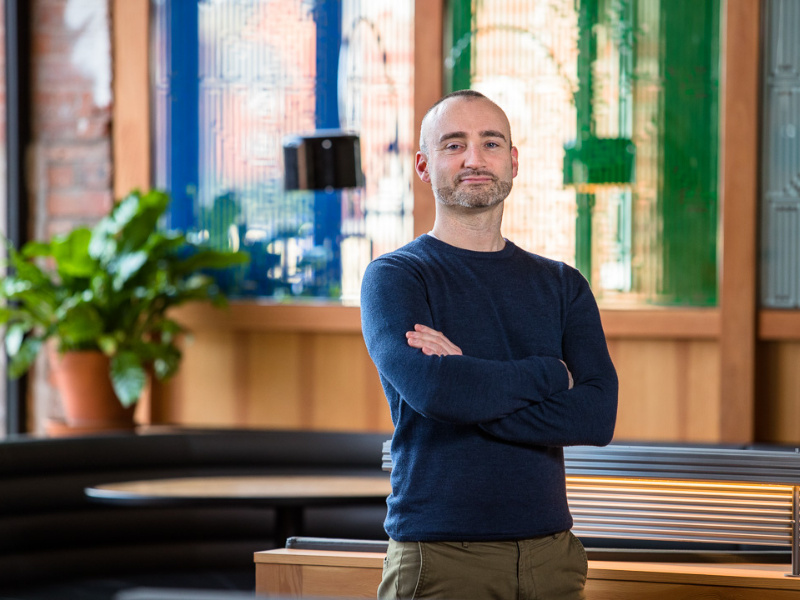Ian MacArthur
Sacha Lord
Impact of the Pandemic on the Hospitality Industry – in this episode we speak to Sacha Lord, Nightime Economy Advisor for Greater Manchester. We look at the hospitality sector, how it has been affected by continued lockdowns, and how we can build back better with this industry at the forefront.
Listen for Chatter about Sacha Lord’s first experience of employment, his belief that hospitality is integral to the country building back after Covid-19, and what hospitality industries need to do to keep Good Employment practices at the forefront of future decision-making.
"I’ve kind of had a lightbulb moment this week actually, because this won’t come as a surprise to you but I do feel like hospitality has been hung out to dry."
Subscribe now for free: Apple Podcasts | Spotify | RSS Feed
It’s all people, I suppose this whole thing, situation, crisis, panic – pandemic, is about people. So when invited to write this piece this was the main topic I kept coming back to.
Thinking back to 2020, when we first heard the term ‘lockdown’, but before that other term we are now so accustomed to –‘furlough’ - businesses in our industry acted in differing ways. Some believed it would be two weeks, so it was a matter of using annual leave to cover and we’d be fine. Others went to panic stations more drastic - immediately reducing their head count and beginning redundancies. It was a frightening time for everybody, but this was the first impact on people in our industry.
Furlough settled the packs, although my phone began to hop with my teams queries of: Am I eligible? How much would it be, as I work more hours than in my contract? Can leavers return? I assume similar things were happening in every business across the country, but the complexities of flexible and variable contracts in our industry was to have further stress affect, once again on our people.
We all know the extended lengths of lockdown seemed never ending before Summer seemed to bring some taste of normality back and we began to re-open. However, the various restrictions meant that at the new maximum capacity, coupled with an increased cost of operating, many businesses would not be the same again for some time. The next step, and probably the one that has done the most lasting damage to the industry was the many, many redundancies across the sector.
This happened across many sectors, not just ours. However (I believe) this was the one where we lost the trust. We became the truth of the typical picture regularly posed of our industry – not a career, no longevity, no stability, zero hour contracts, no security. And just like that we let go of so many strong talented colleagues who then ultimately with their amazing transferrable, flexible, adaptable skills, found work elsewhere.
It’s no secret now that our industry is facing a people crisis - with the restrictions that Brexit brought with it with regard to European workers, and the people we unfortunately had to let go reluctant to face the risk of returning.
I know I’m not alone when I say that we all find ourselves constantly recruiting. We spend additional hours week after week in attempt to refill our teams, we fill gaps with the use of agency workers at a premium, we increase pay rates to beat the competing businesses also in the same situation, and we look at ways we can add value to our benefit packages. These all add cost to already tiny margins, reduced further by restrictions. However, there is a thought of irony to this – surely the interim cost of looking after these people would have been far less than what we are spending now to recoup.
Without doubt the impact on our people has been the biggest factor this pandemic has had on our industry as a whole, and one I have felt the most. But looking at it from the other side of our people, the impact on their lives will have been greater.
This is an industry where mental health issues and stress are prevalent. This was cited in an open forum held by Sacha Lord, Night-time Economy Adviser, where he asked the industry which areas needed most the improvement and support. Mental health issues came above tipping practices in this ranking.
There is no doubt that we will feel the effects of this pandemic on mental health for some time to come. This will be both as a direct effect of the pandemic itself in our personal lives, and indirectly as a result of the various stresses we have encountered at this time.
Now, and looking forward, it is my intention to continue to prove this is an industry that can provide a serious lifelong career, I will do my part to ensure we show loyalty, job stability, progression and continue to promote a culture where mental health is something we are not ashamed to talk about. I believe these will be some of the solutions to our current situation in the long term, but short term, we’ve got some work to do.
